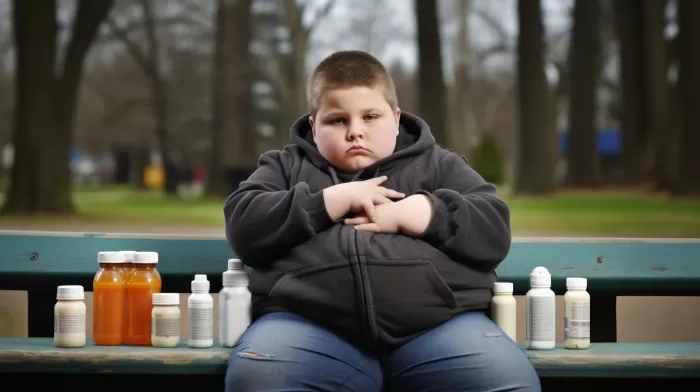The startling truth is kids who are overweight are far more likely than their normal-weight peers to be taking prescription drugs. Consequently, we are raising a generation of children with an increased risk of diabetes and heart problems, as well as a dependency on pharmaceuticals to maintain their health.
Canadian researchers have discovered a worrying connection between a child’s weight and their consumption of prescription medication. But the good news is, by promoting healthier lifestyles, we can immediately impact their health-care costs and prevent future health issues.
The Connection Between Obesity and Prescription Drug Use
In a study of more than 2,000 children, Canadian researchers found that overweight and obese kids between the ages of 12 and 19 were more likely to be on prescription medicine. It’s important to recognize this connection, as childhood obesity isn’t just a problem of vanity; it’s a serious health risk that affects a child’s entire life.
The consequences of obesity are far-reaching: physical health problems such as diabetes and heart disease, mental health issues like depression and low self-esteem, and, in severe cases, stunted growth. By recognizing the relationship between weight and prescription drug use, we can begin to address the bigger issue at hand – the overall health and well-being of our children.
Investing in Prevention: Diet and Exercise
It’s essential to focus on preventative measures when it comes to the health of our children. Researcher Paul Veugelers emphasized the importance of investing in prevention for kids by promoting healthy eating and active living. The immediate benefits of these efforts include a reduction in health-care costs for the families.
Taking it one step further, children who maintain a healthy weight are less likely to develop diabetes or suffer a heart attack 30 to 40 years down the line. Even more incredible, there’s a lower risk of developing cancer. Investing in prevention now leads to significant long-term benefits in terms of health-care costs and overall well-being. It’s truly an instance of making small investments now for enormous returns in the future.
Tips for Encouraging Healthy Choices
Now that we understand the importance of prevention, how do we put it into practice? Here are some tips for encouraging children to make healthier choices and live a more active lifestyle:
*Lead by example. Children often learn by following the example set by the people around them. If you make healthy choices and exercise regularly, your child will likely follow suit.
*Make it fun. Incorporating physical activity into daily life feels less like a chore if it’s a fun and engaging activity. Try organizing family walks, bike rides, or games that get everyone moving.
*Provide healthy snacks. Replace chips and candy with healthier alternatives like fruit, yogurt, whole-grain crackers, or carrot sticks.
*Teach portion control. Encourage children to eat when they are hungry, but not to overeat. Help them understand the difference between emotional eating and genuine hunger.
*Limit screen time. Instead of spending hours in front of the television or computer, encourage children to find alternative forms of entertainment like playing outside or engaging in group activities at school or within the community.
The Power of a Supportive Environment
It’s not just about the individual choices we make; it’s also about the environment we create for our children. A 2014 study found that children who live in neighborhoods with places to play, parks, and recreational centers were less likely to be obese. Additionally, children from families who ate at least one meal together per day were less likely to become overweight.
A supportive environment goes a long way in instilling healthy habits into our children’s lives. By promoting active living, providing opportunities for exercise, and creating a strong family bond with shared meals and activities, we can take a proactive approach to help children maintain healthy body weights. The benefits extend far beyond childhood, with the potential to prevent serious health issues and avoid dependencies on prescription medications.
Income levels and access to health care can also play a significant role in a child’s health. However, this is where intervention by community organizations, including schools and after-school programs, can make a real difference. By incorporating nutrition education, exercise opportunities, and resources for families on healthier living, these organizations can provide essential support, particularly in low-income communities.
Investing in Our Children’s Future
It’s time to take action. By educating ourselves, our children, and our communities on the importance of prevention and the connection between obesity and prescription drug use, we are taking a significant step toward creating a healthier future for our kids. The benefits – both immediate and long-term – cannot be overstated.
Investing in preventing obesity not only reduces health-care costs but also sets the foundation for a more prosperous, healthier future for our children. By prioritizing healthy eating, embracing physical activity, and cultivating a supportive environment, we are truly setting up our children for success.



